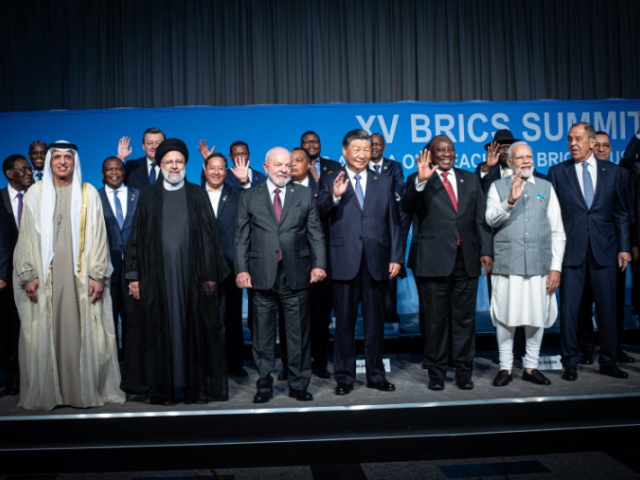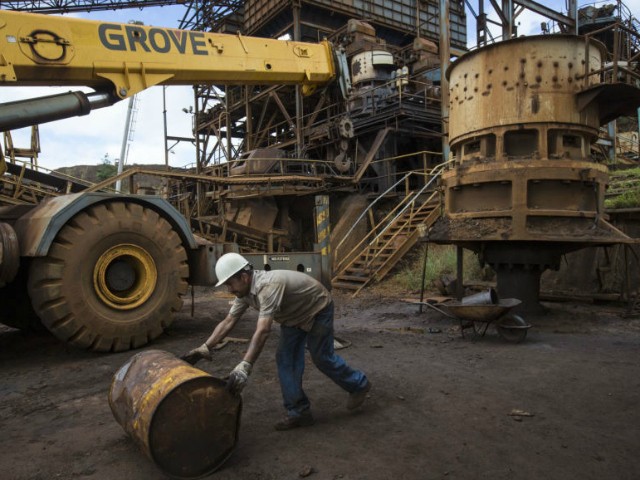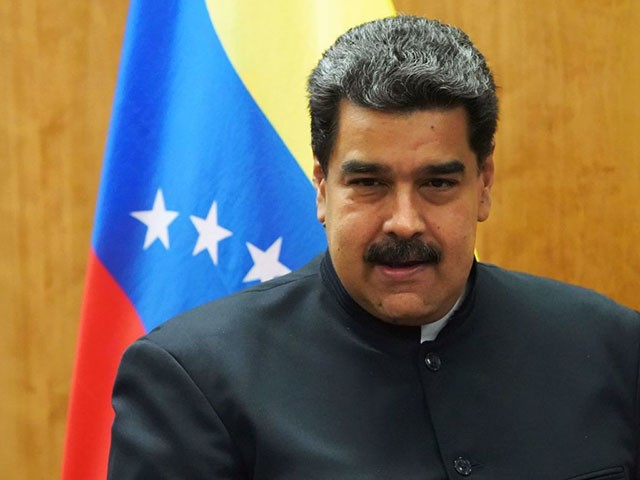CARACAS — Socialist dictator Nicolás Maduro offered Venezuela’s vast oil reserves to the BRICS economic and security bloc on Thursday, hoping to entice the China-led coalition to eventually accept the rogue socialist nation in the group.
The China-led coalition and its members – Brazil, Russia, India, and South Africa – gathered this week in Johannesburg, South Africa, to celebrate its 15th summit. The socialist Maduro regime has been unsuccessfully attempting to convince BRICS to accept Venezuela as a member nation since as early as 2015.
The Venezuelan regime once again made a bid to join the coalition this year alongside 21 other applicants — of which only six were admitted: Argentina, Egypt, Ethiopia, Iran, Saudi Arabia, and the United Arab Emirates. The six newly admitted countries will become formal members of BRICS on January 1, 2024. The Coalition, named after its current five members, has said it does not expect to change its name to accommodate the new countries.

South African President Cyril Ramaphosa and fellow BRICS leaders pose for a family photo with new members on the last day of the BRICS summit (Per-Anders Pettersson/Getty Images).
Maduro, through a pre-recorded message sent to the coalition on Thursday, reiterated his regime’s intentions to join BRICS and its “global integration model,” offering not just Venezuela’s oil reserves, but all of its natural resources in its bid:
#EnVivo 📹 | Mensaje del Pueblo de Venezuela a la 15º Cumbre de los BRICS. https://t.co/FZ9xhnzioN
— Nicolás Maduro (@NicolasMaduro) August 24, 2023
“Venezuela joins the requests of the countries with aspirations to join BRICS, as we officially expressed in a letter in 2015 and recently ratified, contributing to this global integration model the largest certified oil reserves in the world in our country, among other riches,” Maduro said.
“In addition, our country has abundant mineral resources that provide it with over 20 percent of the world’s iron, copper and gold reserves, together with the existence of silver, bauxite, coltan, nickel, rhodium, titanium, among others,” he continued.
Venezuela is home to the largest proven oil reserves in the world at more than 300 billion barrels. However, due to more than two decades of socialist mismanagement, its oil industry lies in shambles, and its oil production has dramatically dropped in recent years. Maduro has enlisted Iran to help repair its rundown refineries while at the same time reducing the facilities’ reliance on U.S.-made technology for its continued operations.

In this Nov. 2, 2017, photo, a Ferrominera Orinoco worker rolls an empty barrel in Ciudad Piar, Bolivar state, Venezuela. Venezuela sits atop the world’s largest oil reserves (AP Photo/Rodrigo Abd).
The Maduro regime’s oil output has seen a noticeable surge throughout 2023, largely a result of oil sanctions relief granted by the administration of American President Joe Biden in November.
According to data from the U.S. Energy Information Administration, six of the now soon-to-be 11 BRICS member nations were among the top ten oil producers in the world in 2022. Iran, Saudi Arabia, and the United Arab Emirates — three of the six new BRICS members that are also part of the Organization of Petroleum Exporting Countries (OPEC) — accounted for 20 percent of the world’s total oil production in 2022, while China, Russia, and Brazil accounted for an additional 20 percent. The United States alone accounted for 20 percent of the world’s total oil production in 2022.
Maduro, in his address, hoped that all OPEC member states presently aspiring to join the China-led bloc are accepted, as it would guarantee BRICS the “handling of 83 percent of all proven oil reserves in the world,” as well as other resources such as natural gas.
Prior to his Thursday address, Maduro placed Venezuela’s now rundown farmlands at the disposal of BRICS nations’ investment on Wednesday. Over the course of two decades, the Venezuelan socialist regime and its “Bolivarian Revolution” seized over nine million hectares of privately owned farmlands and placed them at the hands of regime loyalists who, without any regard for technical capacity, obliterated the once productive lands, forcing the country to import products that it was once capable of producing on its own.
The Venezuelan dictator also expressed his regime’s intention to join the BRICS Think Tank group, offering to share with BRICS his socialist regime’s “accumulated experience” in the “struggle and resistance” against sanctions — which Maduro, and other high-ranking members of his regime, have dubbed “unilateral coercive measures.”
Lastly, Maduro made calls to discard the U.S. dollar, hoping to join forces in the “configuration of a new financial architecture that allows us to carry out our transactions with innovative physical and digital means, and with a wide range of national currencies.”
Christian K. Caruzo is a Venezuelan writer and documents life under socialism. You can follow him on Twitter here.



